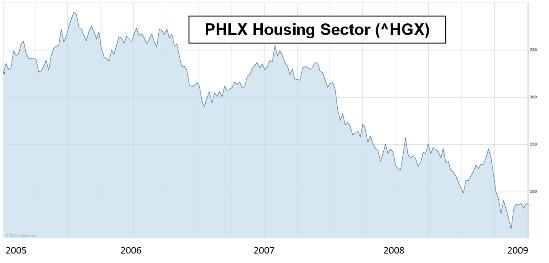
It’s around 10:00 on a Friday night in early 2005. I’m shooting pool in a local bar with Hunter, a math professor at the local university who had just come into a big inheritance and was tossing it around like the found money that it was. He had recently paid cash for a house and taken his new girlfriend to Vietnam, and had (to get to the point of this post), after a few long talks with me, concluded that the housing bubble was about to burst and the banks and home builders were once-in-a-lifetime short candidates. He’d committed a fair chunk of change to put options on those companies in eager anticipation of their collapse.
But not only had the collapse not come but those stocks had risen, sending his options bets into freefall. On this night, he’d had enough. “Listen,” he said, “I can’t think about this anymore. Maybe it’ll happen, maybe it won’t but we’ve said everything there is to say, so let’s find something else to talk about.” We shifted focus to the game at hand, which also had money riding on it, and didn’t talk stocks for the rest of the night. Very discouraging. A friend had placed a big bet on my recommendation, had lost money and was pissed.
We didn’t know it at the time, but Hunter and I were experiencing something common among those who like to bet against bubbles: prediction fatigue, that (sometimes very long) stretch of purgatory that starts when you become certain that things are out of control and a crash is imminent – and runs until the crash actually takes place. Junk bonds, for instance, were clearly a bubble in 1988 but didn’t implode until late 1989. Tech stocks were classic short candidates in 1998 but doubled one more time before tanking in 2000. Housing stocks were garbage (along with most of the mortgages then being written) by 2004, but then they did this:

…..read more HERE













